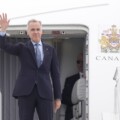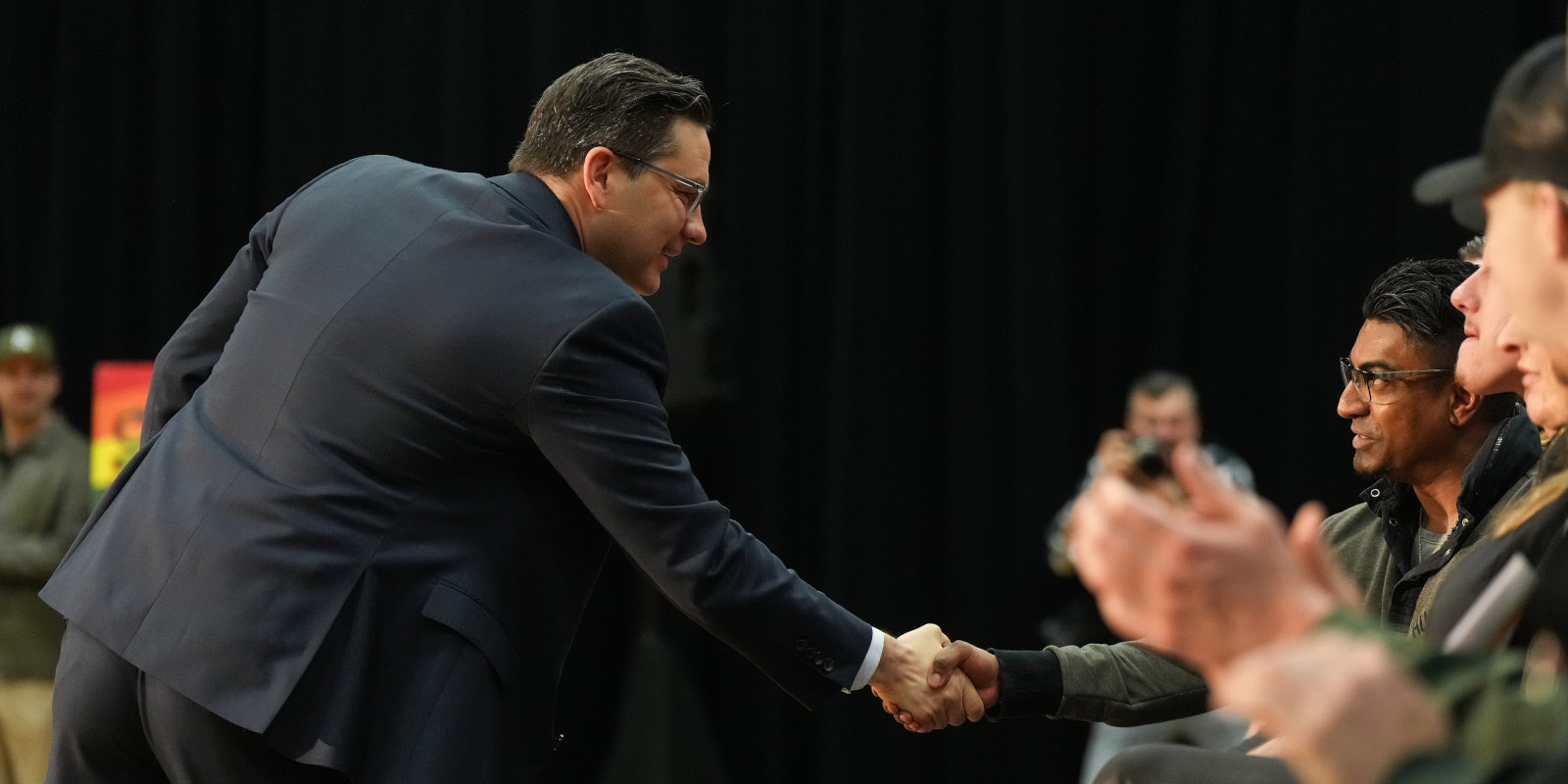Conservative leader Pierre Poilievre announced on Tuesday that a Conservative government would launch a massive lawsuit against pharmaceutical companies that contributed to the opioid epidemic that has swept across Canada in the last decade.
Speaking from New Westminster, B.C. and surrounded by Canadians who have overcome addictions, Poilievre turned his attention to pharmaceutical companies like Purdue, which manufactures OxyContin, for incorrectly marketing some of their products as “safe” and “non-addictive.”
Citing 33,000 overdose deaths in Canada since 2016, Poilievre blamed pharmaceutical companies for contributing to the overdose crisis for profit.
Statistics from the Government of Canada place the exact number of overdose deaths at 33,493 from 2016 to 2022, numbers which exclude data from Quebec. Data from the B.C. government lists 11,390 deaths due to “Drug Toxicity” in the province alone from 2016 to 2022.
“The Trudeau Government has done nothing to hold these powerful pharmaceutical companies, and their consultants like McKinsey, accountable for what they have done, for the misery they reaped, and for the profit that they have made,” said Poilievre.
The provincial government of British Columbia launched its own lawsuit against Purdue and other pharmaceutical giants in 2018 after accusing them of whitewashing the addictive risks of their products. Poilievre pledged a future Conservative government would join a B.C.-led lawsuit to recover the costs borne by the federal government in response to the opioid crisis.
Last August, then-B.C. Attorney General David Eby announced that the province had actually reached a $150 million settlement with Purdue, which some critics of Poilievre were quick to point out on Twitter.
Nonetheless, Poilievre promised that if elected, his government would launch a series of lawsuits against pharmaceutical companies amounting to $44 billion in costs related to the opioid crisis, a pledge that drew praise from BC Liberal leader Kevin Falcon.
“We will launch a separate federal lawsuit to recover money that the federal government has had to spend on borders, Indigenous programs, policing, treatment, and other costs associated with this crisis,” says Poilievre. “The people who profited from this misery can be the ones to pay the bill.”
Poiliever then pivoted to praising the Alberta government’s approach to the opioid crisis, which emphasizes recovery and treatment over the growing use of “safe supply,” which entails distributing alternative drugs produced by pharmaceutical companies to addictive persons.
The reasoning behind “safe supply” is that addicted persons will be using substances that are free of toxic chemicals that have contributed to the overdose-related death toll. B.C. has made “safe supply” a centrepiece of its response to the opioid epidemic, while the “Alberta Model” has resulted in a $275 million investment in February for treatment and recovery programs across the province.

“We need to get people off the streets and into treatment so that we can bring them home drug-free, and a Poilievre government will do that,” said Poilievre after praising the “Alberta Model.”
The Alberta government’s Substance Use Surveillance System, an online database that includes monthly fatal overdoses, has not been updated since October. However, the database until October shows a large decrease in the amount of monthly fatal overdoses between October 2021, and October 2022.
Once updated to include fatal overdoses from the previous five months, any increases or decreases could alter the Alberta government’s record in reducing drug-related deaths thus far.
Pharmaceutical companies have been a constant target of Poilievre’s ire in recent months, whom the Conservative leader has called “scumbags.”
“You favoured policies that flooded our streets with heroin and fentanyl and you tied the hands of our police and prevented them from doing anything about it. You failed to hold the scumbag corporations who brought the drugs to our streets accountable. Companies like McKinsey, Mr. Trudeau,” said Poilievre during a speech in February.
In 2021, McKinsey reached a USD $600 million settlement with 49 states for contributing to the “turbocharge” of opioid sales across the United States.
Recommended for You

Richard Rooney: Uncertainty is the only thing Canada’s new prime minister can count on

David Polansky: Will Mark Carney really reverse course on a decade of Liberal mismanagement?

Mark Harding: Doug Ford’s actions speak louder than his words

‘Control over change’: Sean Speer on the Conservative caucus and Andrew Scheer’s appointment as interim Opposition leader




